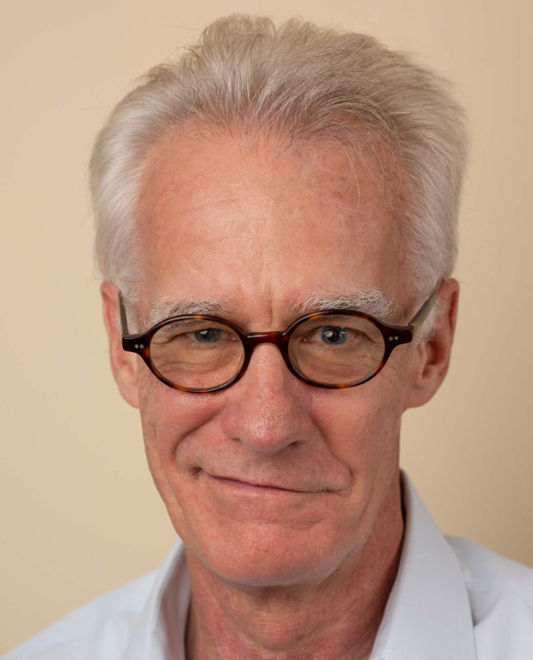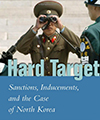
- shaggard@ucsd.edu
- (858) 534-5781
-
RBC #1425
9500 Gilman Dr. #0519
La Jolla , California 92093-0519
Research Professor; Lawrence and Sallye Krause Distinguished Professor Emeritus; Director Emeritus, Korea-Pacific Program; Research Director, Global Governance (IGCC)

Stephan Haggard is a research professor, Lawrence and Sallye Krause Distinguished Professor Emeritus and serves as the Director Emeritus for the Korea-Pacific Program, and Research Director for Global Governance at the University of California Institute for Global Conflict and Cooperation (IGCC). He teaches courses on the international relations of the Asia-Pacific and Korean peninsula at GPS covering political economy as well as security issues. He has done extensive research on North Korea in particular. In addition, he has a long-standing interest in transitions to and from democratic rule and the current phenomenon of democratic backsliding.
His most recent books include “Developmental States” (2018) on the rapid growth of East Asia. His work on North Korea includes three books with Marcus Noland: "Famine in North Korea: Markets, Aid and Reform” (2007), “Witness to Transformation: Refugee Insights into North Korea” (2011) and "Hard Target: Sanctions, Inducements and the Case of North Korea" (2017). His work on transitions to and from democratic rule includes "Dictators and Democrats: Masses, Elites and Regime Change” (2016) and “Backsliding: Democratic Regress in the Contemporary World" (2021).
He has provided commentary for major news outlets, such as CNN International and writes for the Korea Economic Institute's Peninsula blog. He is editor emeritus of the Journal of East Asian Studies.
Ph.D., Political Science, UC Berkeley, 1983
M.A., Political Science, UC Berkeley, 1977
B.A., Political Science, UC Berkeley, 1976
CV
Witness to Transformation: Refugee Insights into North Korea – Stephan Haggard and Marcus Noland (PIIE). Peterson Institute for International Economics (2011)
Stephan Haggard and Marcus Noland's Blog on North Korea
Famine in North Korea: Markets, Aid, and Reform - Stephan Haggard and Marcus Noland. Columbia University Press (2007).
Member, Council on Foreign Relations
Elected member, Faculty Council, Harvard University, 1986 – 1989
Director of Student Programs and member of the Executive Board, Center for International Affairs, Harvard, 1984 – 1989
Chairman, SSRC Working Group on East Asian Regional Research, 1992 – 1995
Program chair, International Political Economy Section, American Political Science Association Convention, 1989
Member, SSRC Joint Committee on Korean Studies, 1988 – 1993; Editorial Board, World Politics, 1990 –1996
Program co-chair, International Studies Association Convention, 1996
Editorial Board, Ethics and International Affairs, 1988 – 1998
External Examiner, National University of Singapore, 1994 – 1998
Editorial Board, International Studies Quarterly, 1994 – 1999
Associate Editor, Pacific Focus, 1987 – present
Editorial Board, International Trade Journal, 1987 – present
Editorial Board, International Organization, 1993 – 1999; 2000 – present; member, Executive Committee, 1995 – 1999; book review editor, 1996 – present
Editorial Board, International Relations of the Asia-Pacific, 2000 – present
Editorial Board, Korean Journal of Policy Studies, 2000 – present
Advisory Board, Journal of Asian Business, 1994 – present
 "Hard Target"
"Hard Target"
Stephan Haggard (UC San Diego) and Marcus Noland (PIIE)
Stanford University Press (2017)
"Witness to Transformation: Refugee Insights into North Korea"
Stephan Haggard (UC San Diego) and Marcus Noland (PIIE)
Peterson Institute for International Economics (2011)
"U.S. Policy Toward the Korean Peninsula"
Stephan Haggard (UC San Diego) and Susan Shirk (UC San Diego)
Council on Foreign Relations (2010)
"Development, Democracy, and Welfare States: Latin America, East Asia, and Eastern Europe"
Stephan Haggard (UC San Diego) and Robert R. Kaufman (Rutgers)
Princeton University Press (2008)
"Famine in North Korea: Markets, Aid, and Reform"
Stephan Haggard (UC San Diego) and Marcus Noland (PIIE)
Columbia University Press (2007)